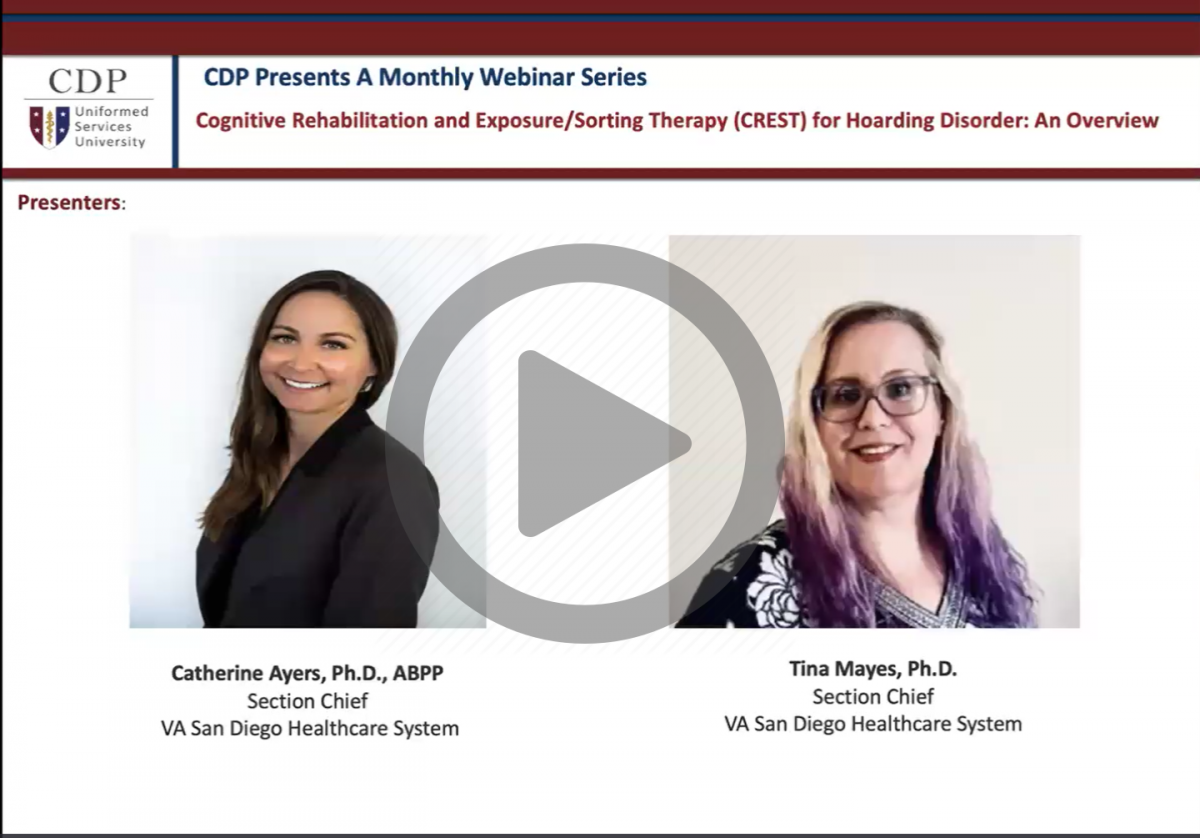Hoarding Disorder (HD) is a chronic and debilitating psychiatric condition that leads to devastating personal consequences and significant healthcare costs. Epidemiological reports estimate the prevalence of clinically significant hoarding symptoms at 7%, while almost 20% of the US population report difficulty discarding ‘worn out’ or ‘useless’ items. This can be problematic when combined with many of the additional challenges certain populations face, including severe functional impairment, medical and psychiatric comorbidities, and cognitive dysfunction.
A growing body of research demonstrates higher rates of mental health challenges for Veterans, including hoarding challenges when compared to the typical populace. Unfortunately, Veterans with HD are chronically underdiagnosed and do not receive evidence-based treatment. In this webinar, we will discuss the challenges associated with identifying, screening for, and ultimately treating hoarding disorder in a veteran population with a focus on Cognitive Rehabilitation and Exposure/Sorting Therapy (CREST).
CREST is a proven, evidence-based treatment that addresses neurocognitive weaknesses that may contribute to HD while targeting the core symptoms of urges to save and avoidance of discarding that lead to the accumulation of clutter. Participants will be introduced to the specific treatment components of CREST. Modifications that were made in response to COVID to include adapting CREST for virtual delivery will be discussed
Learning Objectives:
Attendees will be able to:
- Explain current deficiencies in identifying Veterans with Hoarding Disorder (HD).
- Evaluate modified Cognitive Rehabilitation and Exposure/Sorting Therapy (CREST) treatment features and advantages.

